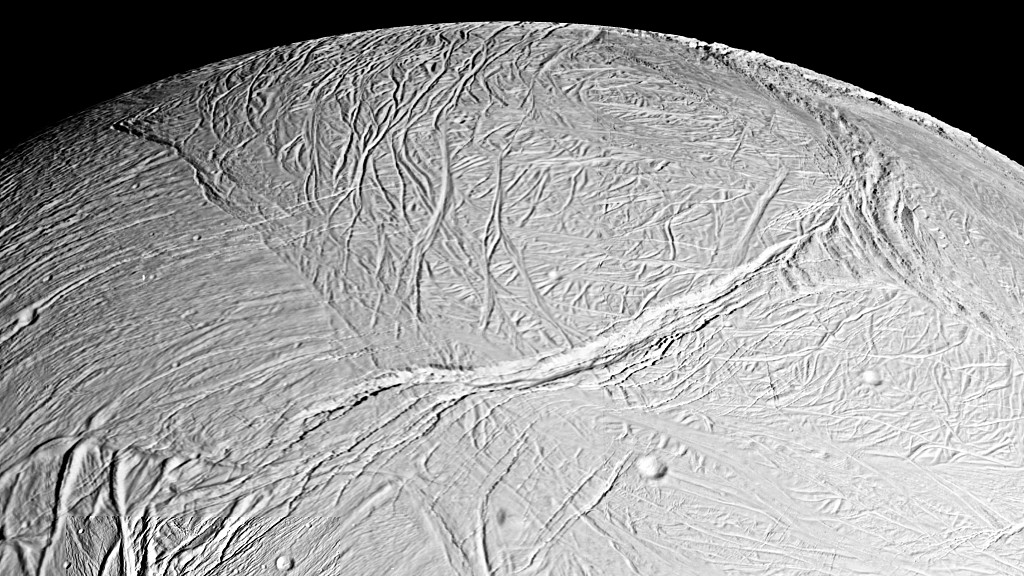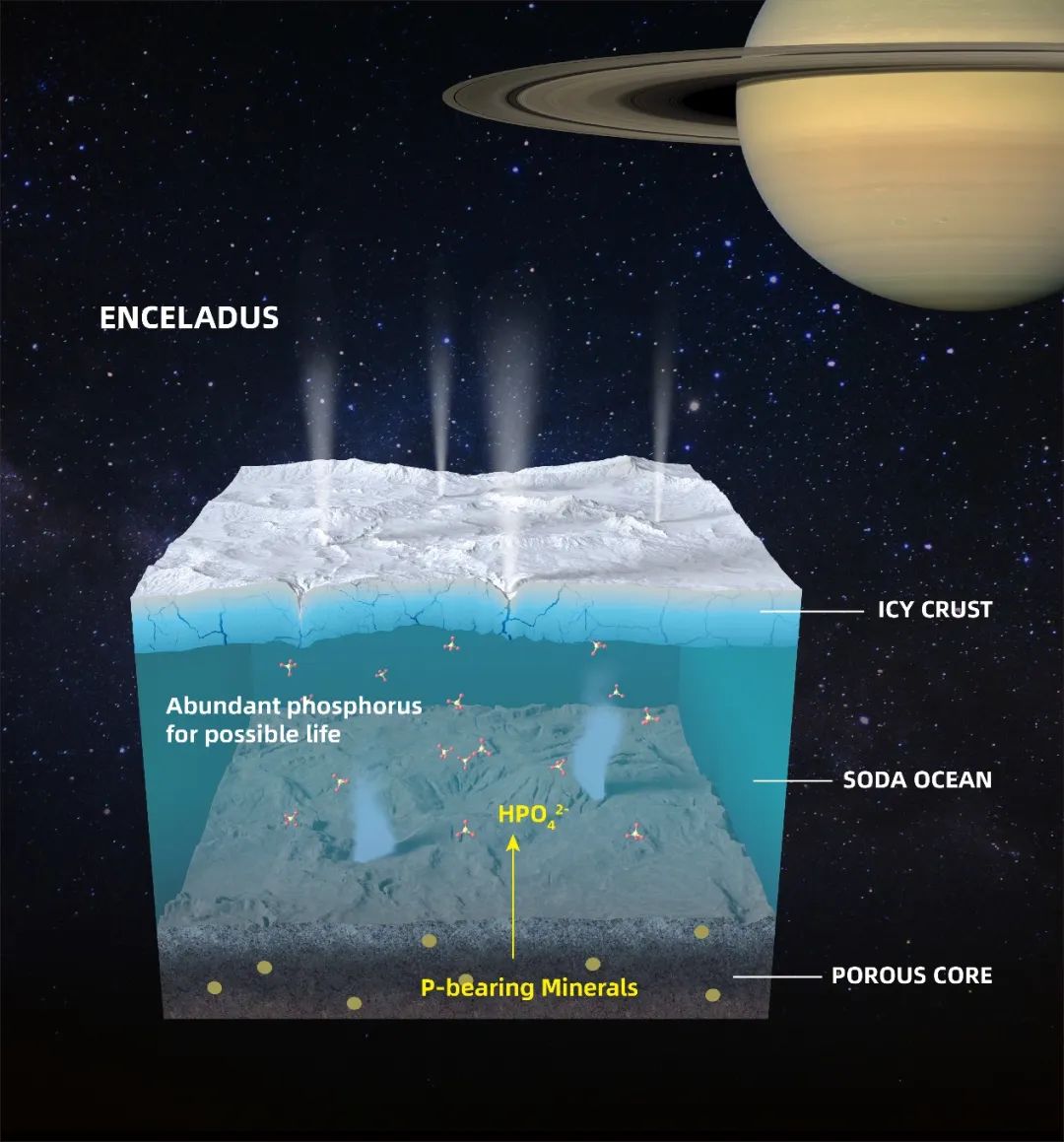
An image shows the Saturn's moon Enceladus. /Imperial College London via CFP
An image shows the Saturn's moon Enceladus. /Imperial College London via CFP
A team of scientists have discovered dissolved phosphorus in the subsurface ocean of Saturn's moon Enceladus, providing new evidence for a key building block for life, according to the University of Science and Technology of China (USTC) in Hefei City in the country's eastern Anhui Province.
The discovery fills the gap in the study of the habitability of Enceladus' ocean and provides a scientific reference for future exploration of possible life on the moon, according to the USTC.
Since the 1980s, scientists have detected elements and molecules that are instrumental to life on this moon, including carbon, hydrogen, oxygen, nitrogen and sulfur. However, the bio-essential element, phosphorus had yet to be found.
Phosphorus in the form of phosphates is vital for all life. It is essential for the creation of DNA, cell membranes and bones in people and animals.

A schematic shows abundant dissolved phosphorus in seawater of Enceladus. / USTC
A schematic shows abundant dissolved phosphorus in seawater of Enceladus. / USTC
"The models we performed suggest that there can now be greater confidence that the ocean of Enceladus is habitable," said Hao Jihua, the first author of the paper and researcher at the USTC.
"While phosphorus has yet to be identified directly, our team discovered evidence for its availability in the ocean beneath the moon's icy crust," said Christopher R. Glein, co-author of the paper and researcher at the Southwest Research Institute in the United States.
"We need to get back to Enceladus to see if a habitable ocean is actually inhabited," said Glein in a press release on the institute's website.
The study was published in the journal Proceedings of the National Academy of Sciences of the United States of America.